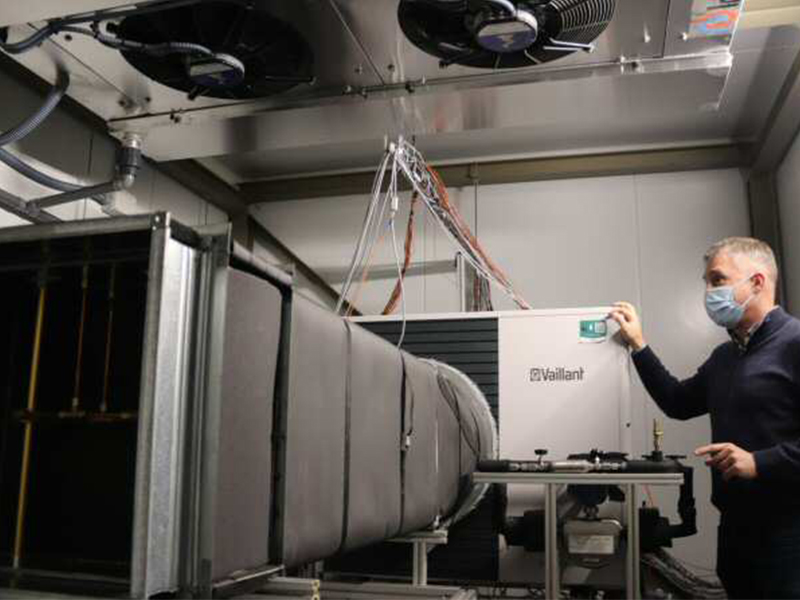The first domestic heat pump without carbon dioxide emissions developed in Valencia.

The first domestic heat pump that uses propane as a refrigerant and allows homes to be heated without emitting carbon dioxide into the atmosphere, has been developed by a team from the University Institute.
According to José González, director of the thermic area of the IUIIE, it is the first commercial domestic equipment with zero direct and indirect emissions. Now, there is equipment that uses the same technology, aerothermal, but does not use a natural fluid such as propane. This allows the pump to heat homes in an environmentally friendly way, without emitting carbon dioxide into the atmosphere. In addition, its high energy efficiency allows it to qualify as renewable energy, as it pumps energy from the environment.
One of its advantages is that it can generate hot water for heating at temperatures up to 75°C with very reliable energy efficiency, which is not possible with conventional heat pumps. In addition, it can be installed not only in new buildings but also to replace gas boilers in existing buildings. It also allows the application of legionella treatment without the need of external support.
The machine is highly efficient (A+++); for every kWh of electricity it consumes, it produces 6,48 kWh of heating for the home. In terms of hot sanitary water production, for every kWh of electricity consumed, it generates 4,43 kWh.
José González explains that, in the technology development that has been carried out, it has been possible to achieve energy efficiencies like those of the currently used refrigerants with high global warming power. To do this, they analysed the best configuration of the vapour compression cycle adapted to the used refrigerant, propane, minimising the quantity used and optimising the control parameters of the equipment.
References:
Noticia UPV: Desarrollan la primera bomba de calor de uso doméstico que funciona con refrigerantes naturales de nulas emisiones de dióxido de carbono | Universidad Politécnica de Valencia. (2022). Retrieved 28 April 2022, from http://www.upv.es/noticias-upv/noticia-13532-upv-saunier-du-es.html